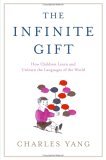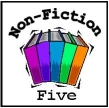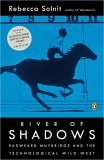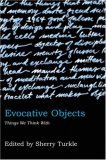September 8, 2007
 The Infinite Gift: How Children Learn and Unlearn the Languages of the World
The Infinite Gift: How Children Learn and Unlearn the Languages of the World by Charles Yang
by Charles Yang
principles and parameters theory –
“First, there is a set of universal principles, like the principle of structure dependence, that all languages obey. These principles lay out the bounds on how words are put together into phrases, phrases into sentences, and how phrases can (and cannot) move around in sentences. The principles are innate and don’t have to be learned: they explain the absence of the impossible errors like the linear rules that all children steer clear of…..
Second, the differences among languages can be very compactly described by about a few dozen parameters. Learning a language becomes a problem of “twenty questions”: the child needs only to fix the values of the parameters, and that’s it. Now the main thesis, and the subtitle of the book, will make sense. The process of picking parameter values for grammar learning can be given a familiar name: natural selection. The child tries out various options in the parameter system, which turn up as “errors” in her speech: these imperfections actually belong to perfect languages in universal grammar, just not the one she eventually learns. These wrong options, however, cannot last forever; a Bostonian child trying out the parameter values for Japanese will not generally understand English or be understood. Only the grammar actually used in the child’s linguistic environment will not be contradicted, and only the fittest survives. In other words, children learn a language by unlearning all other possible languages.” (p. 31)
categorical perception – the ability to distill a continuous range of signals into discrete units. (p 41) (ex. color perception, speech perception)
variational learning – start with all possible grammars, only the target language persists (p 157)
“parameters that are expressed by more sentences in the environment will be learned faster, because their competitors will be punished more often” (p 171)
Comments (1)
- cognitive science,culture
August 29, 2007
[For this reading challenge I picked non-fiction titles that are outside the usual scope of my reading and of this website.]
River of Shadows: Eadweard Muybridge and the Technological Wild West by Rebecca Solnit
by Rebecca Solnit

I enjoyed reading this book quite a lot, in part because many of the events take place in San Francisco, Palo Alto, and other Bay Area locations that I’m familiar with. It’s also a well written account, winner of the 2003 National Book Critics Circle Award for Criticism. The book relates the story of Muybridge’s famous motion studies, mostly concentrating on the photographer’s career leading up to and following the innovations that enabled him to capture the details of a trotting horse’s gait. His development of high-speed photographic techniques settled a debate by showing that all four hooves were off the ground at once. The Wikipedia entry for Muybridge cites this book as its source and so gives a fairly good summary of its contents, plus a nice collection of related links.
Solnit also focuses on the changes in the experience of time and space brought about by technological developments of the period such as the railroad and photography. The genealogy from Muybridge’s motion studies to Hollywood and Silicon Valley is just touched on in the last few pages of the book.
Comments (0)
- culture,Non-Fiction Five Challenge
August 25, 2007
New York Times review of The Political Brain: The Role of Emotion in Deciding the Fate of the Nation by Drew Westen: “…takes an interesting dollop of neuroscience and uses it to coat the conventional clichés of the Why Democrats Lose genre.”
by Drew Westen: “…takes an interesting dollop of neuroscience and uses it to coat the conventional clichés of the Why Democrats Lose genre.”
Comments (0)
- culture,mind
August 23, 2007
 “The Objects of Our Desire”, an article in today’s Washington Post discusses the new book
“The Objects of Our Desire”, an article in today’s Washington Post discusses the new book
Evocative Objects: Things We Think With , edited by Sherry Turkle, director of the MIT Initiative on Technology and Self. Evocative Objects is the first of a planned three-book series on technology and self.
, edited by Sherry Turkle, director of the MIT Initiative on Technology and Self. Evocative Objects is the first of a planned three-book series on technology and self.
See also Andy Clark, Natural-Born Cyborgs: Minds, Technologies, and the Future of Human Intelligence , suggesting humans are “beings primed by Mother Nature to annex wave upon wave of external elements and structures as part and parcel of their own extended minds.” (p. 31)
, suggesting humans are “beings primed by Mother Nature to annex wave upon wave of external elements and structures as part and parcel of their own extended minds.” (p. 31)
Comments (0)
- culture,mind,self
 The Infinite Gift: How Children Learn and Unlearn the Languages of the World
The Infinite Gift: How Children Learn and Unlearn the Languages of the World by Charles Yang





